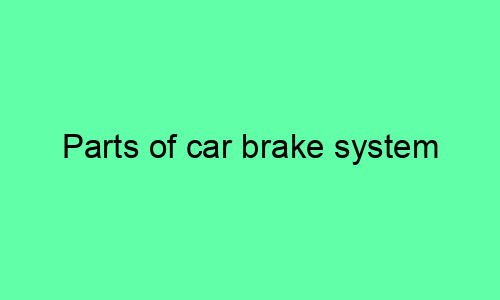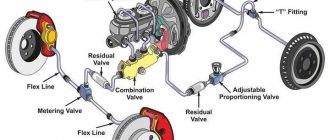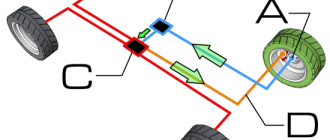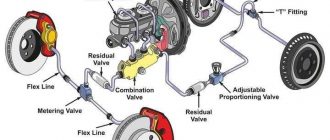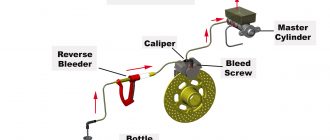Parts of a Car Brake System
Master Cylinder
The master cylinder is the heart of the brake system. It converts the force applied to the brake pedal into hydraulic pressure. This pressure is then sent through the brake lines to the brake calipers.
Brake Lines
The brake lines are the tubes that carry the hydraulic pressure from the master cylinder to the brake calipers. They are typically made of metal or rubber.
Brake Calipers
The brake calipers are mounted on the wheels. They contain the brake pads, which are pressed against the rotors to slow down or stop the wheels.
Brake Rotors
The brake rotors are the discs that the brake pads press against. They are typically made of cast iron or steel.
Brake Pads
The brake pads are the friction material that is pressed against the rotors. They are typically made of a composite of organic or metallic materials.
Brake Fluid
The brake fluid is the hydraulic fluid that is used to transmit the pressure from the master cylinder to the brake calipers. It is typically a glycol-based fluid.
Parking Brake
The parking brake is a mechanical device that is used to lock the rear wheels in place. This is typically used when the vehicle is parked on a hill.
Brake Booster
The brake booster is a vacuum-powered device that helps to amplify the force applied to the brake pedal. This makes it easier to stop the vehicle.
Anti-Lock Braking System (ABS)
The ABS is a safety system that prevents the wheels from locking up during braking. This allows the driver to maintain control of the vehicle while braking.
Traction Control System (TCS)
The TCS is a safety system that helps to prevent the wheels from spinning during acceleration. This helps to improve traction and stability.
Electronic Stability Control (ESC)
The ESC is a safety system that helps to prevent the vehicle from skidding. This system uses sensors to detect when the vehicle is losing control and applies the brakes to correct the situation.
Conclusion
The brake system is one of the most important safety features on a vehicle. It is important to understand the different parts of the brake system and how they work together to stop the vehicle.
